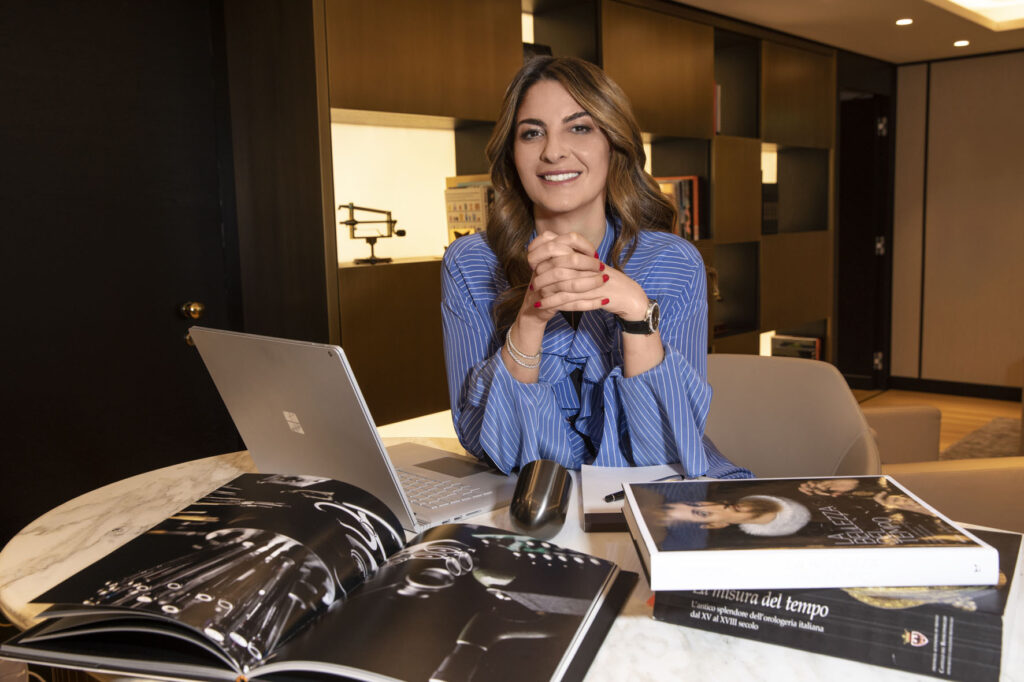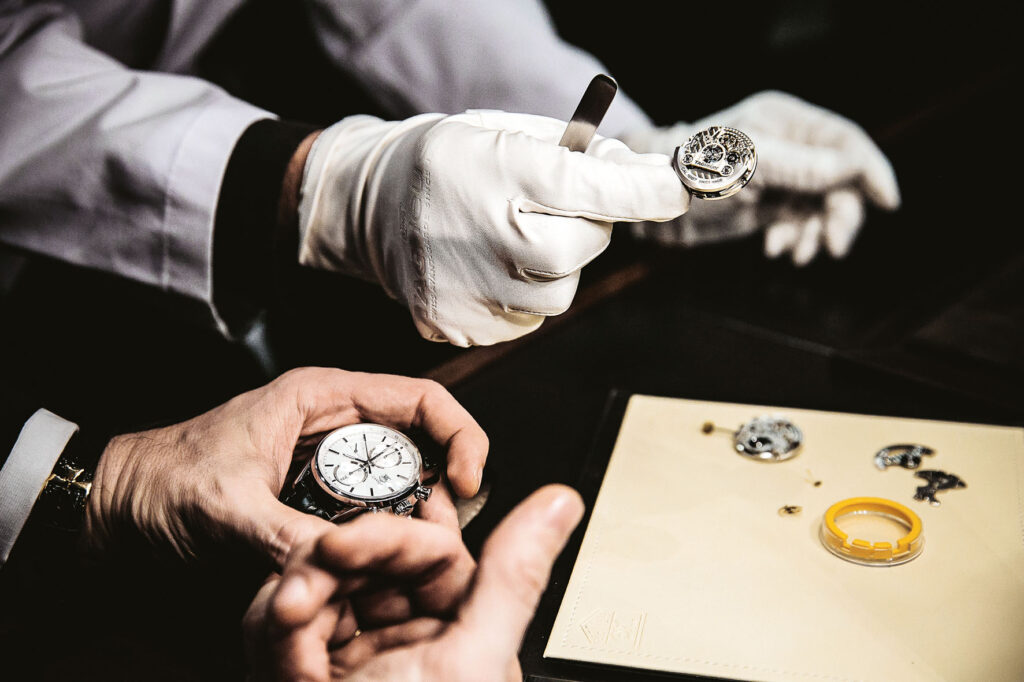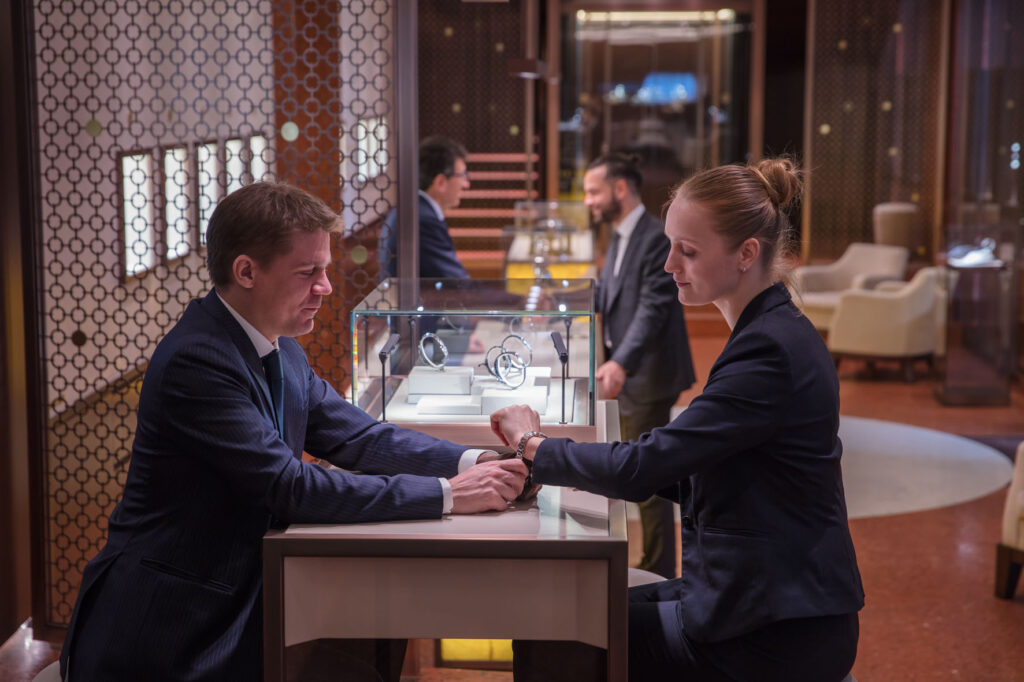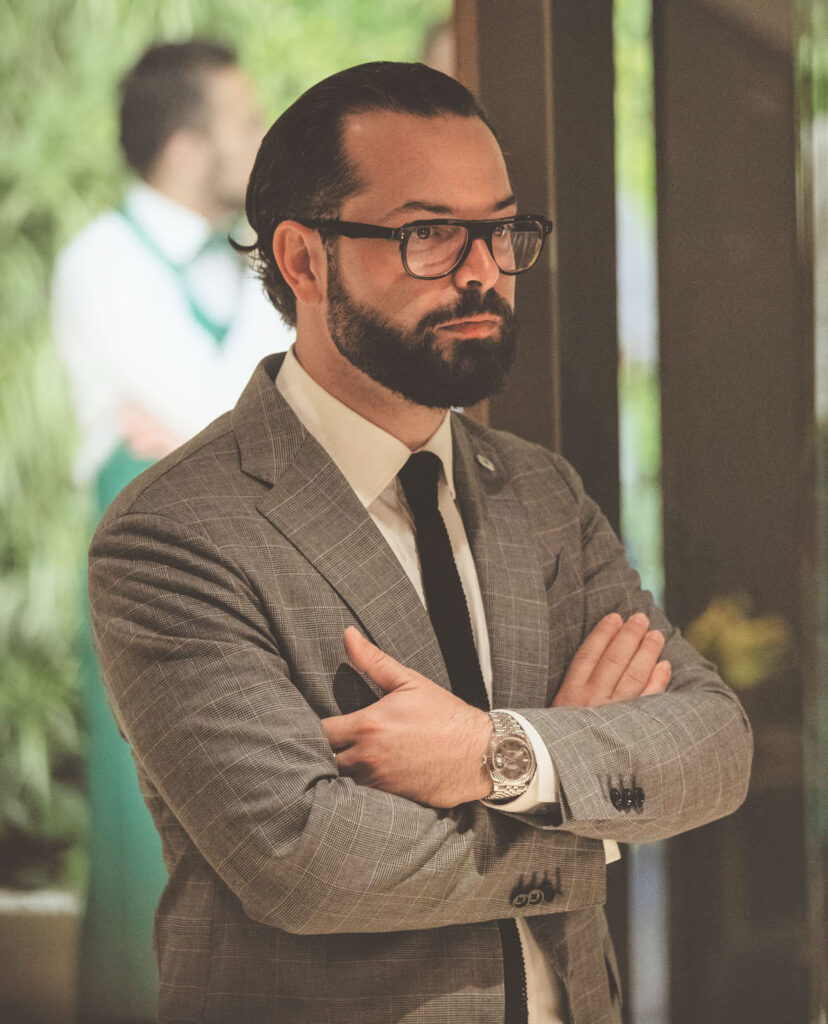Pisa Orologeria: All the secrets of Italy’s most important watch boutique
29 June 2022Chiara Fiorentino: “From 1940 to today, my grandfather’s small workshop has been completely transformed – but the founding core, the beating heart, has remained the same for more than eighty years.”

Milan, among other large metropolitan areas, is the city that has grown the most in Italy since the Second World War, and it can easily compete in a hypothetical top ten even in Europe. Following the same pace, Pisa Orologeria – with a family history that runs through most of the 20th century and, in particular, the extraordinary tale of the women’s branch, protagonists of the last fifty years – has managed to take a similar path in our beloved sector, becoming a reference on the national market and one of the most influential players in the continent’s landscape. What secrets lie beneath this incredible success? And, between present and future, what strategies can they adopt to remain firmly on the tip of the iceberg of Italian watchmaking? Let’s hear what Chiara Fiorentino, Pisa Orologeria CEO, and Marketing & Communication Manager Alessandro Bucchi have in mind.
In a world in which the positions of power are mainly occupied by men – in general and in watchmaking in particular – what is the added value given by your extraordinary feminine family vision?
CF: I’ll let Alexander answer, as I am obviously biased…
AB: The added value comes from the complementarity of vision and approach. Diversity, especially gender diversity, is always an element of richness in any social organization, including businesses. Having a woman at the top means dealing with another kind of sensitivity on a daily basis, not only regarding purely commercial issues, such as product or customer reception, but also with respect to personnel management – which isn’t secondary. Both Maristella and Chiara have managed to strike a balance between professionalism and familiarity, something that both customers and staff perceive and appreciate.
How did you go from being a historic workshop to becoming the most important reference point for watchmaking in Italy in just a few years? And how do you grow from a family business to a highly successful and structured business reality?
CF: Well, it’s partly because of what Alexander said. The factors are many of course. The driving force behind everything is and remains the passion that is passed down from generation to generation, the desire to do well, better, to keep up with the times and to respond to the challenges we face every day. From 1940 to today, my grandfather’s small workshop has been completely transformed but the founding core, the beating heart, has remained the same for more than eighty years.
Between the present and the future, in 2020 you launched your highly intuitive digital storefront called “Pisa Circle,” with a very appropriate payoff – “Enter our world without leaving yours” – where watches, jewelry and accessories are available. Is this a channel that is giving you satisfaction, and how much can it come to weigh on your business in the future?
AB: This is a project that had been in the works for some time, and whose implementation accelerated dramatically during the pandemic. Pisa Circle provided an accessible virtual point of contact at a time when stores were closed, storefronts on the streets as empty and lifeless as our cities. “Enter our world without leaving yours:” in hindsight, this payoff proved all too appropriate! Pisa Circle has brought us and is bringing us satisfaction, but it is still a work in progress. In fact, we are working on a major update that will be launched in a few months. That said, we strongly believe in our stores, in the human relationships they allow. The materiality of the watch, as of any object of high craftsmanship, is an indispensable element in the shopping experience. This online channel represent an opportunity, enriching and not replacing the traditional ones.

With more than thirty brands in your portfolio, we assume it is not easy to handle so many different partners, each with specific needs and demands…
CF: The wide selection of brands, the depth of our offering, has always been one of our hallmarks. Dealing with so many partners is not easy, but it is an effort that is rewarded by the awareness that we offer our customers an immersive experience in our industry. Over the years, we have opted for a hybrid approach by opening single-brand boutiques and investing in our flagship store as an evolving space of contamination. It is a strategy that has allowed us to offer different solutions to brands while managing to match their expectations with our growth strategies.
AB: The maisons put a lot of emphasis on communication: they demand spaces for visibility off and online. Competition is tight. Being able to satisfy everyone, avoiding overlap, without losing one’s identity as an independent retailer is a real challenge. Fortunately, we can count on eighty years of history and experience, as well as established relationships with individual maisons that allow us to work with serenity.
As a demonstration of the dynamic nature of your business strategies, in 2018 jewelry was added to your traditional core business of watchmaking – both with the sale of other brands and the birth of the Pisa Diamonds collection. We know about your remarkable performance. In this sense, do you aim to make this branch a global player, or will you always champion watchmaking?
CF: It is a project that originated from an idea of my mother’s, and that won me over as well. On the other hand, adding jewelry to our offer seemed the right choice to also meet the female customers. We started cautiously, taking our first steps a few years ago, beginning to explore this fascinating world and to propose interesting brands in terms of history and craftsmanship value, the same approach we use in watchmaking. We then decided to produce our own jewelry line, Pisa Diamanti, a classic collection but with an identity all of its own. Time has proven us right: the segment has grown steadily and is now an integral part of our offer.
Speaking of watches, have you ever thought of launching a collection under your own brand, as, for example, Bucherer did?
CF: The temptation is always there and, in the past, we have done small experiments, more for fun than with a definite desire to go that way. The transition from retailer to manufacturer is by no means trivial: we have always preferred to focus on our core business knowing that there is still a lot of room for growth and improvement.
AB: The Pisa Limited Editions, produced in collaboration with different brands over the years, are perhaps a fair compromise that has allowed us to satisfy our creative instincts assisted by the specific expertise brought in by our business partners.
Nearly 90 million euros in sales and more than eighty employees. These are numbers that, more than horology, recall a listed company. For that matter, have you ever thought about going public?
CF: No, as of today, getting listed is not a viable option. All our strategic plan goals have always been achieved by incurring lower costs than a possible listing. On the other hand, the investments we have made never required capital increase or new cash entry. We have good international visibility and very transparent communication, well beyond the industry standards, so even the added value brought by transparency obligations, resulting from a listing, is not a factor that convinced us to take this step. Finally, Pisa has always been an extension of my family: at the moment it is not our intention to expand the shareholding by changing its structure through the onboarding of institutional investors, domestic or international.
How do you run such an important business, how much does being able to delegate matter? What does today’s corporate structure look like?
CF: There is no one-and-only recipe, valid for every aspect of business. What I am sure of is that the ability to delegate becomes essential when a company grows to a significant size. To get to delegation, however, you have to place trust in your employees, and that is precisely why I prefer to grow staff within the company and give them positions of responsibility once they have gained the necessary experience. In recent months we have revised our organizational chart, trying precisely to enhance profiles of this type: young people who have accompanied us over the years and contributed to the growth of the whole group. I speak to and consult each of them on a daily basis.

From your perspective as sensitive and privileged observers, how do you envision watchmaking in the future, perhaps 20 years from now, both in terms of enthusiasts’ tastes and market trends?
CF: These two years have taught us that it is really difficult to predict the future. Everything can change from one moment to the next. Watchmaking is rather impervious to novelty, but lately I have noticed a change of pace. Digitization has now become part of our daily lexicon, the percentage of women interested in watches is steadily increasing, and the enthusiasts’ age has decreased. These are all elements that will affect the market.
AB: The trends Chiara listed can already be perceived at the communication level. Advertising investment, previously heavily oriented toward print media, is being rebalanced in favor of online marketing, in all its declinations. Social medias, accomplice to the pandemic, have become an essential focus from a commercial perspective. Campaigns and events dedicated to the female universe are now increasingly numerous. The generational change then implied a change of tone in communication as well as in brand offer – brands which are paying increasing attention in order to intercept a younger audience with new products and a more accessible entry level.
By Michele Mengoli


